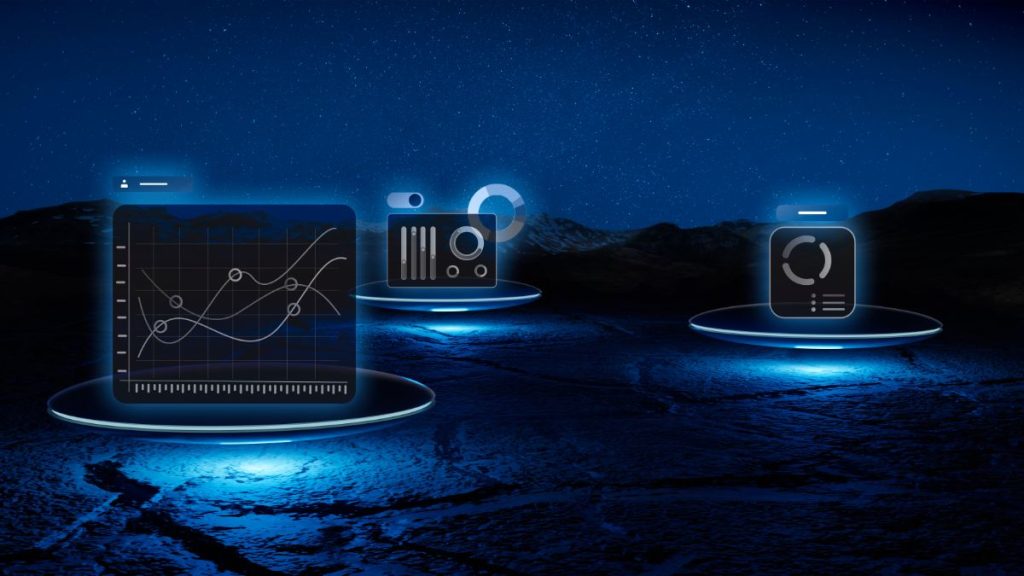In the ever-evolving landscape of artificial intelligence (AI), Alaya AI emerges as a trailblazer, promising to redefine the boundaries of what is possible in the realm of machine learning and intelligent systems. As we stand at the threshold of a new era marked by technological advancements, Alaya AI is poised to play a pivotal role in shaping the future of AI applications across various industries. This article delves into the intricacies of Alaya AI, examining its key features, applications, and the potential impact it could have on our interconnected world.
Understanding Alaya AI
Alaya AI is not just another AI platform; it represents a sophisticated integration of cutting-edge technologies, including advanced machine learning algorithms, natural language processing (NLP), and deep neural networks. Developed by a team of seasoned AI researchers and engineers, Alaya AI aims to overcome the limitations of traditional AI systems by enhancing adaptability, scalability, and overall performance.
Key Features of Alaya AI
Adaptability and Learning Capabilities
Alaya AI stands out for its remarkable adaptability and learning capabilities. Unlike static AI models that rely on pre-programmed responses, Alaya AI leverages continuous learning to adapt to changing environments and evolving data. This dynamic nature enables it to stay ahead of the curve and provide more accurate and relevant insights over time.
Natural Language Processing (NLP)
A cornerstone of Alaya AI’s capabilities lies in its advanced natural language processing. This feature allows the system to understand and interpret human language with a level of nuance that was previously challenging for AI models. As a result, Alaya AI excels in tasks such as sentiment analysis, language translation, and conversational interfaces.
Deep Neural Networks
The incorporation of deep neural networks in Alaya AI contributes to its ability to handle complex data patterns. This deep learning architecture enables the system to discern intricate relationships within vast datasets, making it particularly effective in image and speech recognition, as well as other tasks that demand a high level of pattern recognition.
Scalability and Efficiency
Alaya AI is designed with scalability in mind, allowing it to seamlessly grow and adapt to increasing data volumes. This scalability ensures that the system can handle large datasets without compromising efficiency, making it suitable for applications ranging from individual use to enterprise-level solutions.
Applications of Alaya AI
Healthcare
In the healthcare sector, Alaya AI holds immense promise for revolutionizing diagnostics, personalized medicine, and patient care. Its ability to analyze medical records, interpret diagnostic images, and predict disease outcomes can significantly enhance the efficiency and accuracy of healthcare professionals.
Finance and Banking
Alaya AI’s adaptability and learning capabilities make it an ideal candidate for applications in the finance and banking industry. From fraud detection and risk assessment to customer service and investment analysis, Alaya AI can streamline processes, mitigate risks, and provide valuable insights for informed decision-making.
Retail and E-commerce
The dynamic nature of consumer behavior requires AI systems that can adapt and understand shifting trends. Alaya AI, with its advanced NLP and deep learning capabilities, excels in analyzing consumer preferences, optimizing supply chain management, and providing personalized recommendations, thereby enhancing the overall shopping experience.
Education
In the field of education, Alaya AI can contribute to personalized learning experiences, intelligent tutoring systems, and educational content customization. By understanding individual learning patterns, Alaya AI can help educators tailor their approaches to meet the diverse needs of students.
Manufacturing and Industry 4.0
Alaya AI’s scalability and efficiency make it well-suited for applications in manufacturing, particularly in the context of Industry 4.0. From predictive maintenance and quality control to supply chain optimization, Alaya AI can play a crucial role in enhancing productivity and minimizing downtime.
Impact and Ethical Considerations
As with any powerful technology, the widespread adoption of Alaya AI raises important ethical considerations. The potential impact on employment, data privacy, and biases in AI algorithms necessitate careful scrutiny and responsible deployment. Developers and stakeholders must collaborate to establish ethical frameworks, guidelines, and regulations to ensure that Alaya AI is used responsibly and for the benefit of society.
Job Displacement and Reskilling
The increased automation facilitated by AI technologies, including Alaya AI, may lead to job displacement in certain industries. It is imperative for societies and businesses to prioritize reskilling programs to equip the workforce with the skills needed for the jobs of the future. This transition should be managed thoughtfully to minimize the societal impact of job displacement.
Data Privacy and Security
The vast amounts of data processed by AI systems like Alaya AI raise concerns about data privacy and security. Strict measures must be in place to ensure the responsible handling of sensitive information, protecting individuals from unauthorized access and potential misuse. Transparent data policies and encryption standards are crucial to building and maintaining trust in AI systems.
Algorithmic Bias
AI models, including Alaya AI, can inadvertently perpetuate biases present in the training data. It is essential for developers to address and mitigate biases to ensure fair and equitable outcomes. Ongoing monitoring and auditing of artificial intelligence (AI) systems can help identify and rectify biased patterns, promoting a more inclusive and unbiased use of AI in various applications.
Conclusion
Alaya AI represents a significant leap forward in the field of artificial intelligence, offering a blend of adaptability, scalability, and advanced learning capabilities. Its potential applications across diverse industries make it a versatile and powerful tool for solving complex problems and enhancing decision-making processes. However, the responsible deployment of Alaya AI requires a collective effort from developers, policymakers, and society to address ethical considerations and ensure that its benefits are realized without compromising individual rights or perpetuating inequalities. As we embrace the era of intelligent systems, Alaya AI stands at the forefront, paving the way for a smarter and more interconnected future.







